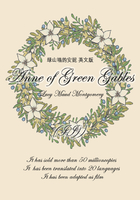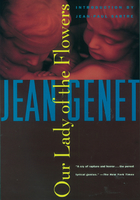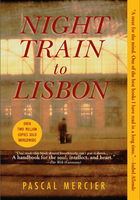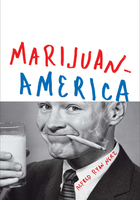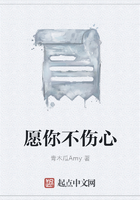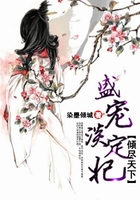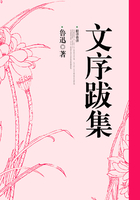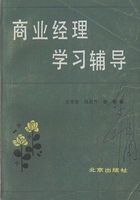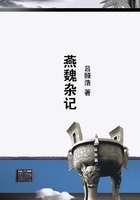This book was a complete surprise to me. Everything about it—from what I learned in researching it to how it changed my personal life to even its subject matter—is different from what I ever imagined when I started.
Let me explain. I was hired to write a book about a particular healthcare company that owns nursing homes. Now, don't be hasty and put this down just because I said “nursing homes.” Give me a chance to explain. I promise it gets interesting.
When I started, I had only the vaguest idea of what the healthcare company did. What I did know, from my father, who worked there at the time, was that its philosophy and management practices were fascinating and unique. Those who worked at the company were profoundly, almost nuttily, devoted to the idea of seeing people—all people—in the truest and deepest sense as real people. For example, the executive team thought of themselves so completely as a team that they didn't take individual bonuses but shared one. I also knew that the two co-CEOs were not the highest paid people in the company and that, because of a profit-sharing plan at the local level, most of the middle executives actually took a pay cut to move “up.” (And by the way, if you're wondering if it's unusual for a company to have two CEOs: yes. Yes, it is.)
This is intriguing stuff. So I approached the CEOs of this company with the idea of writing a book about the kinds of things they did and the decisions they made at the company level. They were delighted with the prospect of a book that would share what they had learned in their company, but they were uncomfortable with anything that smelled to them like self-promotion. “We know what kind of book we don't want it to be,” they told me: not a self-congratulatory puff piece, not a whitewash, not a promotional tool.
But what did they want? A history? A case study? A philosophical exploration? They just shrugged. They'd never written a book; they'd let me figure it out, which was fine because I had already mapped out the sort of case study/leadership theory this situation called for. And I thought (mistakenly, it turned out) my primary task would be shadowing the executive team.
But I couldn't get in to see them. There were delays as they canceled meetings to handle crises of various kinds (spoiler alert: the nursing home industry is not actually boring), and what with one thing and another, our initial meeting kept getting postponed. Finally, one of them suggested that, in the meantime, I should go visit some of their facilities to see what the company does from the ground up anyway. “Wear scrubs,” he told me.
Wear scrubs?
That was a surprise. I couldn't see why I, an independent, objective observer there to learn about management theory, ought to get down and dirty enough to have to wear scrubs in a nursing home. Doing this was unlikely to help me at all with the philosophical book I was envisioning. Management is management and leadership is leadership. But a job is also a job, so I bought some scrubs.
Like most of us would be, that first day I was put off by the look and smell and unfamiliarity. I chose to start by shadowing the nurse who treated wounds, since checking surgical stitches and bedsores on feet seemed preferable to engaging with the residents literally face to face. This nurse's name was Lauren, and she was another surprise. She was happy, she was effusive about the joys of her job, and she loved her patients and told me all about each one as I followed her around. Then I went to the physical therapy room and met more happy, fulfilled people who couldn't stop telling me how much they loved working with the elderly. Then I followed a nursing assistant who thought she had the perfect job.
I visited three facilities that first week, and surprises like those just piled on. I started asking these line staff, “What's the best and worst part of your job?” and couldn't believe their answers. I watched them for hours and saw for the first time what tireless affection meant. I saw deep devotion and great humor in places I'd never expected them. I saw happiness and belonging and meaning all gorgeously combined with some of the most physically and emotionally demanding jobs in the country. I discovered that the people who worked in this industry were better than me.
Over the course of eight months, I experienced a profound shift as I watched and talked with these people—a tectonic, life-changing shift into an entirely different way of being a person and experiencing others. The things I learned from Lauren and others like her transformed not only my marriage but my relationship to my children and my view of my self and my own life. The difference was dramatic and staggering. For example, when I started researching this company, I desperately wanted to get a divorce. By the time I finished my research, I was happily married.
Yup—to the same guy.
Months later, I met with the CEOs and told them I knew what kind of book I wanted to write. I wanted to write about the tremendous, unexpected change that had come into my personal life as a direct result of the time I had spent in nursing homes. I wanted to write about the staff members I had met who saw others as people, no matter how grumpy or old or frail or compromised by dementia those patients were, and how much joy they found in helping those who could not help themselves. I wanted to express my love for those who lived long, vibrant lives full of meaning and experience and whose opinions and thoughts and wisdom and value were not diminished by the slowing of their bodies. I wanted to express how I discovered that everything about the way I had been seeing the world was wrong and how I came to see it truthfully. I wanted to write something that would give others the same experience I had: a shift to a way of seeing and living with others that opens up the potential for true appreciation, love, and joy.
The CEOs were ecstatic; in a lovely parallel to my own experience, this is what they'd been looking for without even knowing it. In the end, we decided to not even name the company in this book; it's not so much about what any one company does but about what any company—or team or group or family or individual—can do with the power of seeing people as people. And this anonymity allows us to focus on the semi-independent individual facilities and staff, because the shift I experienced is available to anyone, whether or not the executive leadership team shares a bonus. So here we are. I started out aiming to write a leadership case study and ended up writing about how direct care workers in individual nursing homes show how to see people as people. Surprise!
The Shift is for all those who are trying to improve their relationships and who are willing to start seeing people as people. I can tell you right now it's not going to go the way you expect. Really, it's not. But I'll be there right to the last page; I'm making the shift myself, and I'll walk you through it.
The founding ideas of this healthcare company come from the Arbinger Institute, a worldwide management consulting company. Those who are already familiar with the Arbinger ideas will recognize the two ways of seeing people and the transformative moment I call the shift, but you will see them in a compelling new environment. You will find dozens of true stories, including the details of my change and one company's way of operationalizing the Arbinger ideas, that add further support for the power of this approach.
The book is also for those who are not familiar with Arbinger; it is my true story and is written to stand on its own. You don't need any prior knowledge or background, merely a willingness to engage with your own life in a new way.
And it's also for anyone who works in this astonishing industry of caring for the elderly. In this book you will find validation, appreciation, and admiration for the work you do. I hope you can use it to share the joy of the industry with others who don't understand the importance of your work or are dismissive of you for choosing geriatric care. You are my heroes.
All the stories in this book come from my personal experience with the company, and all of them are true according to my notes and my best recollection. Some of the stories are events I witnessed or participated in, and some were told to me. These last are included only when I could verify the events with an actual participant. Quotations are always just that, direct quotations, and not paraphrases (unless I so indicate). All the people in the company are real and described accurately, but all names have been changed—not just to maintain the anonymity of the company but to protect the privacy of the residents. Names of individual facilities have been changed for the same reasons. My descriptions of people and events in the nursing homes and offices are accurate to the best of my memory and according to the notes I took in the moment. If there are inaccuracies and errors, they are mine and mine alone.
I slightly altered some details of my own personal life for brevity (some issues were more complicated than I could fully describe here) and for the privacy of my husband and children. However, the substance of our issues, and my emotions and private thoughts as I dealt with them, are all unflinchingly and embarrassingly accurate.
Authors always say they “couldn't have done it” without the help of some list of people, and in my case that is literally true. The stories here belong to those I met, watched, or heard about in the halls of nursing homes. They transformed my life; I owe them my happiness. We all owe them this book.
Kimberly White
March 2018


